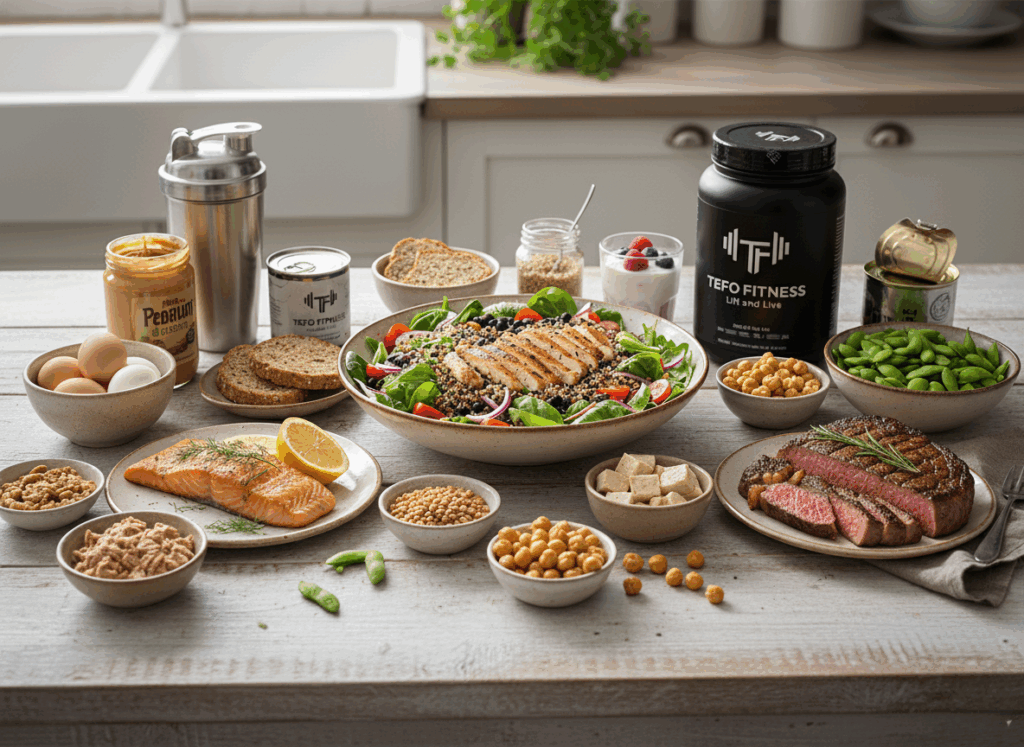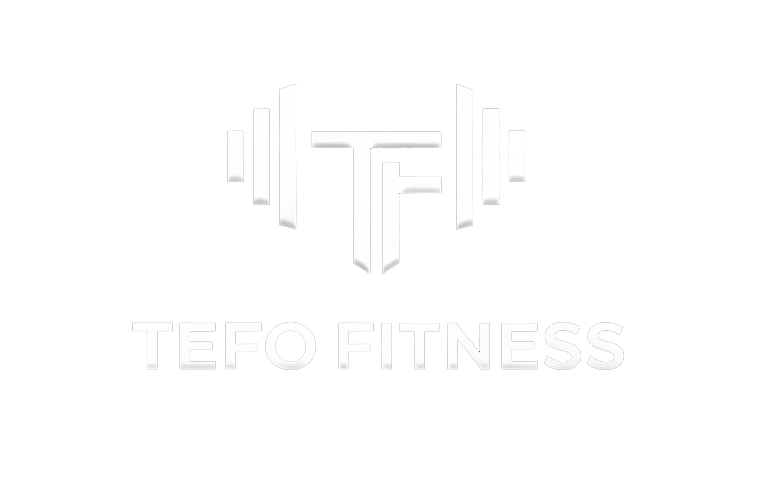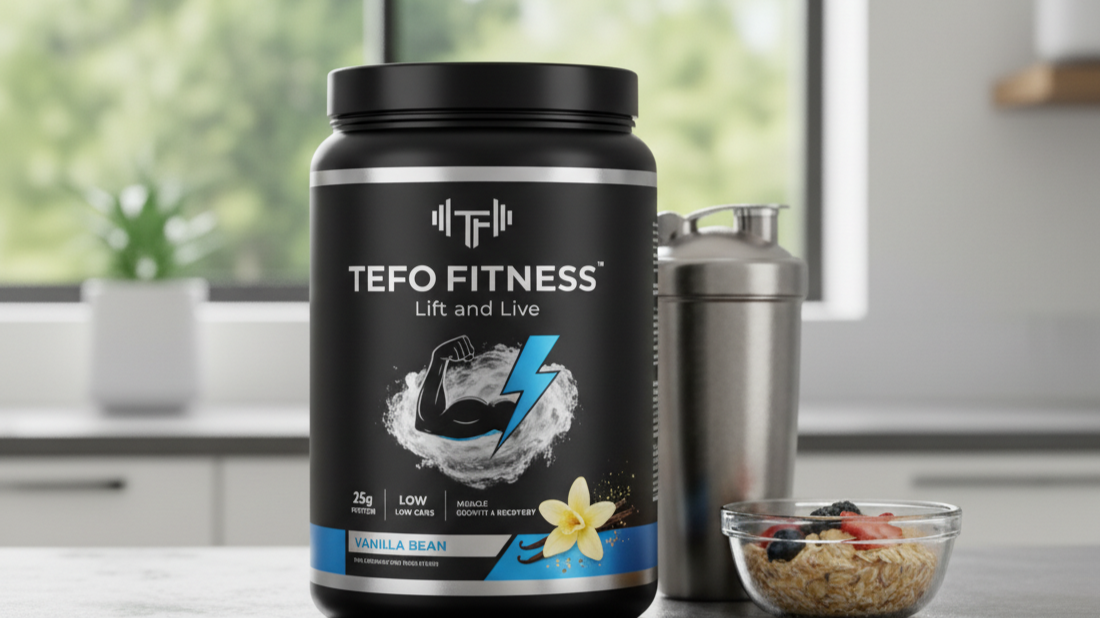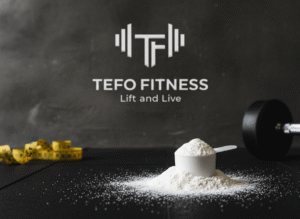We constantly hear about high-protein diets, protein shakes, and even collagen supplements. From people tracking their macros to those following the Mediterranean or DASH diet, everyone seems to be focusing on one thing — protein.
But why is protein so important? And how much do we really need? In this blog, we’ll break down what protein actually does for your body, how it supports healthy nutrition habits, and the best ways to include it in your meals — from simple recipes to smart snacks that fit your lifestyle.
What Is Protein and Why Does It Matter?
Let’s start by addressing why protein is important.
But first, what is protein? Protein is one of the body’s most essential nutrients. It’s made up of amino acids, which serve as the building blocks for muscles, skin, bones, and even hormones. Every cell in your body needs protein to function correctly.
Protein supports muscle repair after workouts (learn more in our guide on the best types of training for your fitness goals), helps maintain healthy skin and hair, and plays a key role in your metabolism and immune system.
It also provides essential protein benefits for long-term health and fitness, especially when included as part of a high protein diet. According to the Harvard T.H. Chan School of Public Health, protein is found in nearly every part of the body, from muscle and bone to enzymes that drive chemical reactions and the hemoglobin that carries oxygen in your blood.
How Much Protein Do You Need Each Day?

So, if protein already exists in our body, why do we need to consume it—and why every day? The reason is simple: your body constantly breaks down and rebuilds protein to repair muscles, create new cells, and produce enzymes and hormones.
Since this process never stops, you need to eat protein regularly to replace what your body uses.
Now that we understand the importance of protein in maintaining these systems, it’s clear why maintaining a steady intake is crucial for overall health, and is not just a new trend.
Protein Needs Based on Activity Level
Okay, so protein is important, but now how much should one consume? And from where?
The answer varies depending on the individual, including their age, activity level, and goals.
According to the National Institutes of Health (NIH), the average adult should aim for at least 0.8 grams of protein per kilogram or 0.36 grams per pound of body weight per day. That’s roughly 55 to 70 grams a day for most people.
However, if you’re active, lift weights, or play sports, your body needs more to repair and build muscle, closer to 1.2 to 2.0 grams per kilogram or 0.54 to 1 grams of protein per pound of body weight.
To have a clearer understanding:
- A 150-pound (68-kilogram) person should aim for about 82–136 grams of protein daily if they’re training regularly.
- A 120-pound (55-kilogram) person who’s less active might only need around 44 grams per day.
Basically, take your body weight (in Kilograms) and multiply it by 1.2, or (in Pounds), then multiply your weight by 1. This is the recommended daily amount of grams to aim for.
Best Protein Sources for a Balanced Diet

Now, when it comes to sources, many animal and plant-based options will help us achieve those protein goals.
Assuming one has no dietary restrictions, it is ideal to focus on a mix of lean animal proteins and plant-based options.
For instance:
(These are just some examples)
- Animal sources: chicken breast, turkey, eggs, fish, Greek yogurt, lean beef, and milk.
- Plant-based sources include beans, lentils, tofu, quinoa, edamame, nuts, and seeds.
What about protein powder, protein bars, and all of those new protein products that keep coming to the market?
With so many protein products on the market today, from powders and bars to cookies, chips, and even cereal, it can be hard to know which ones are actually good for you.
The truth is that protein supplements are helpful, but they are not essential for everyone. According to current research, they can be a useful tool when you struggle to hit your protein targets from whole foods alone. For example, this might happen if your schedule is hectic, your appetite is low, or your diet is restrictive.
A meta-analysis found that adding more protein to someone’s existing diet can lead to greater gains in lean body mass, but this benefit happens mostly when combined with resistance training.
It is also important to note safety and quality concerns. Some independent tests have revealed traces of heavy metals like lead, arsenic, and cadmium in certain protein powders. Because the supplement industry is less tightly regulated than food, quality can vary greatly between brands.
If you decide to use protein products, keep these guidelines in mind:
- Use them to supplement, not replace, whole-food protein sources (meat, eggs, dairy, legumes, tofu, nuts, etc.)
- Choose ones with third-party verification (NSF, USP, Informed Choice)
- I personally recommend checking https://labdoor.com/, as they are an independent source for evaluating supplement quality.
- Keep the ingredient list simple and watch for high added sugar content.
- Don’t expect huge results if your diet is already solid — extra protein only helps where there are gaps.
The Bottom Line
In brief, protein is crucial for maintaining good health. For active people who train regularly, or want to build or maintain muscle, slightly higher protein intake can help meet the body’s increased demands from exercise (and yes, you should be proud of that!). The key is not to overthink it. Focus on eating a variety of whole foods, ensuring every meal includes a good source of protein, whether animal-based or plant-based, and add a protein shake when needed. If you stay consistent with that, your body will have everything it needs to stay strong, healthy, and well-fueled so that you can Live and Lift!
References:
Harvard T.H. Chan School of Public Health. (n.d.). Protein. The Nutrition Source. Harvard University. https://www.hsph.harvard.edu/nutritionsource/what-should-you-eat/protein/
Mayo Clinic Staff. (n.d.). Protein shakes aren’t a magic way to lose weight. Mayo Clinic. Retrieved [date you accessed it], from https://www.mayoclinic.org/healthy-lifestyle/weight-loss/expert-answers/protein-shakes/faq-20058335
National Institutes of Health. (2021). Protein: MedlinePlus. U.S. Department of Health and Human Services. https://medlineplus.gov/protein.html
Harvard Health Publishing. (2023). The hidden dangers of protein powders. Harvard Medical School. https://www.health.harvard.edu/staying-healthy/the-hidden-dangers-of-protein-powders
Cermak, N. M., Res, P. T., de Groot, L. C. P. G. M., Saris, W. H. M., & van Loon, L. J. C. (2012). Protein supplementation augments the adaptive response of skeletal muscle to resistance-type exercise training: A meta-analysis. The American Journal of Clinical Nutrition, 96(6), 1454–1464. https://pubmed.ncbi.nlm.nih.gov/23134885/
Colorado State University, Department of Food Science and Human Nutrition. (2024). Protein powder. College of Health and Human Sciences. https://www.chhs.colostate.edu/fsi/food-articles/dairy/protein-powder/





